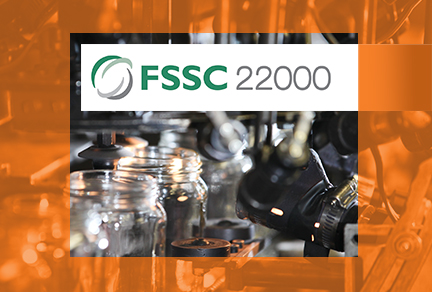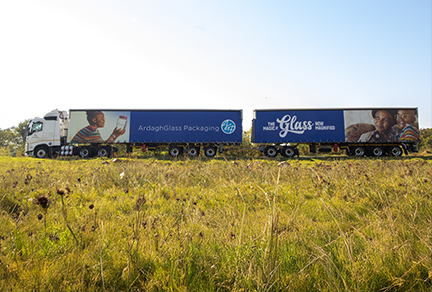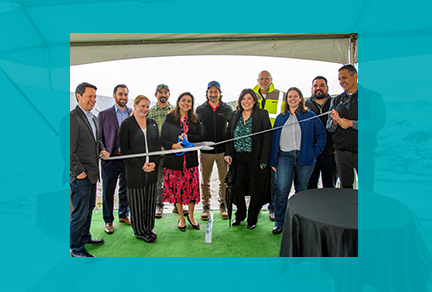Ardagh's money4glass initiative marks one-year milestone in sustainable recycling
Published: October 30, 2024
The money4glass initiative, launched by Ardagh Glass Packaging-South Africa in July 2023, has reached its one-year milestone. Aimed at revolutionising glass recycling, the programme continues to show tangible results, representing a significant stride towards meeting South Africa’s Extended Producer Responsibility (EPR) requirements and towards achieving a truly circular economy in the country.
With the intention of driving growth in glass recycling and empowering recyclers, money4glass appeals to three levels of participants:
- Level 1 glass recyclers who typically handle more than 10 tonnes per month.
- Level 2 glass recyclers who recycle smaller loads and sell to level 1 operators.
- Level 3 are typically informal traders who contribute to the recycling chain.
This tiered approach ensures inclusivity across the recycling spectrum, from large-scale operators to individual collectors, encouraging a comprehensive ecosystem for glass recycling in South Africa.
Thomas Shaw, Designate Chief Commercial Officer of Ardagh Glass Packaging-Africa says, “At Ardagh our purpose is to make packaging for good, and this initiative delivers on that promise by encouraging recycling efforts and promoting environmental sustainability. With our first year of the programme completed, we are really pleased with the progress. Initiating a new approach for glass recyclers was always going to be a challenge, however, the positive response from our traders has been encouraging. Many have embraced the digital approach and feedback from our recyclers is that the platform is user-friendly. This has played a pivotal role in facilitating the transition to the digital platform. Along the journey, we have been cognisant of feedback, and agile in adapting our operating procedures so that the programme is continuously improving and is more user-friendly. One of the most recent upgrades is that waste pickers can now self-register. These changes have ensured they are able to operate seamlessly all while enhancing their productivity too.”
During the year (August 2023 to July 2024), the company’s glass recycling depot at its Clayville facility in Gauteng received cullet tonnage close to 303,000. Of this, 131,000 tons (~43%) were transacted on money4glass. In the Western Cape, at the company’s Bellville facility, total cullet tonnage received was 57,000, with 17,000 tons (~30%) transacted on the digital platform.
Shaw adds, “There is obviously still plenty of room for growth, which we hope to drive through the compelling incentives available to qualifying recyclers on the money4glass programme.”
In 2021, the South African government enacted the EPR legislation, which is a producer-focused mechanism that aims to reduce waste by ensuring that producers of products take responsibility for the entire lifecycle of their products and packaging. The intention is to increase recycling, thus decreasing dependency on new raw materials, and to ensure the effective and efficient management of end-of-life products. The BanQu digital technology used by the money4glass programme assists Ardagh to collate data that can be used for EPR Plan audits, while at the same time reducing the ever-present risk of fraud, driving both recycling and transformation in the glass recycling industry.
“We are pleased that during the first year, the incentives paid by our industry to all three levels of recyclers through Ardagh Glass Packaging and The Glass Recycling Company (TGRC), amounted to over R16 million (R14.8 million in Gauteng and R2.6 million in the Western Cape). This proves that prioritising sustainability not only benefits the environment but also grows the economy,” notes Shaw.
Ardagh and TGRC grappled with the challenge of deploying the mandatory fees to waste pickers in a way that ensures the fees are disbursed based on activity, they reach the intended beneficiaries, and opportunities for fraud are minimised. Clearly the system had to operate in real time so waste pickers would receive their funds as soon as they handed over their material. A novel web-based platform, money4glass, and a voucher-based payment system, kasiCash, were introduced for this purpose. Ardagh has been testing, and will very shortly introduce, another digital payment option (CellBux) onto the money4glass platform, to increase the footprint where waste pickers can use these vouchers.
One of the main hurdles to growing waste picker service fee disbursements has been education and awareness. Waste pickers have been operating in a cash-based economy, and there is understandable resistance to going cashless. For this reason, TGRC waste picker incentives extend to the buyers of cullet too so that they are encouraged to onboard and transact with waste pickers on the platform.
“We have seen encouraging growth through money4glass,” shares Shaw. “Very significantly, from July 2023 to August 2024, the amount of waste collected grew exponentially, from 42 tons to around 5,000 tons. In the same period, just over R750,000 was paid to waste pickers and the pool of waste pickers registered on the platform grew from 18 to 276. These are all very encouraging statistics which emphasise the importance of the money4glass programme.”
“We are excited about the ongoing progress and the array of opportunities that money4glass offers the glass recycling community. We appeal to all levels of glass recyclers to join and become part of the solution. We look forward to witnessing the growth of money4glass as it paves the way for a greener future,” concludes Shaw.
To learn more, visit www.money4glass.co.za









